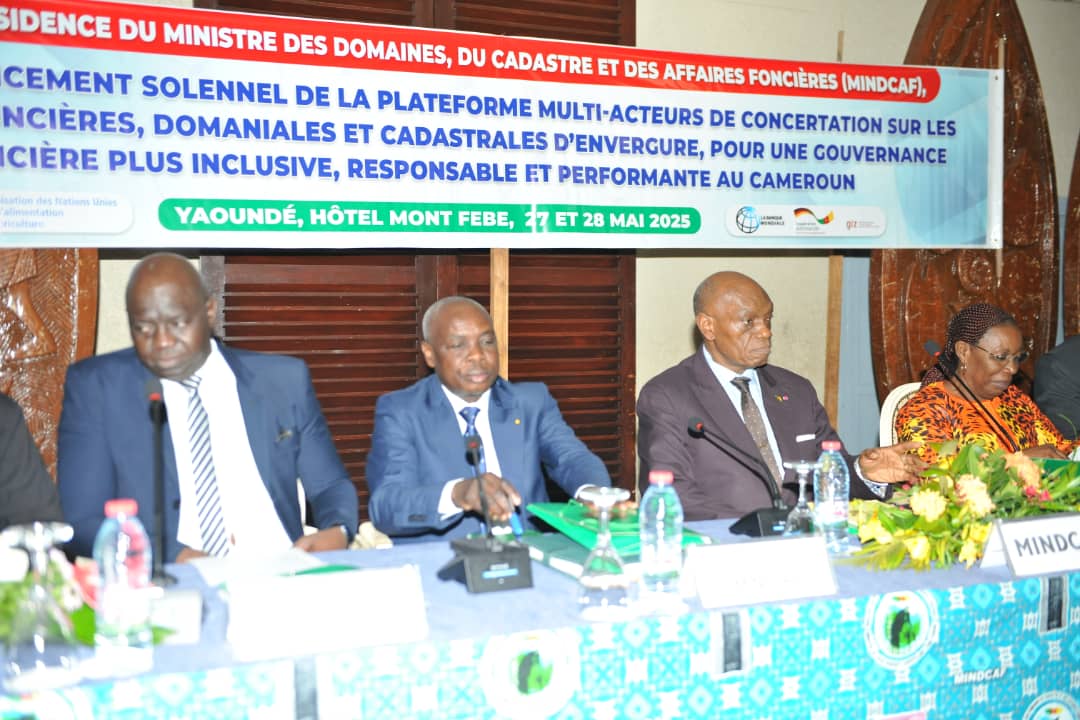Peace - Work - Fatherland
LAND REFORM IN CAMEROON IS UNDERWAY

The Minister of State Property, Surveys and Land Tenure officially launched the proceedings of the Multi-Stakeholder Platform for Consultation on State property, surveys and land tenure issues during a meeting that took place on 27 and 28 May at the Mont Febe Hotel Yaounde, in the presence of technical, institutional and financial partners and several other stakeholders.
In a context of growing tensions over land issues, MINDCAF has launched the Multi-Stakeholder Platform for Consultation on State property, surveys and land tenure issues. This landmark event was jointly organised with the Food and Agriculture Organisation of the United Nations (FAO), GIZ, the World Bank and other institutional stakeholders, the private sector, traditional rulers and councils. They met in committees for two days to find sustainable solutions to massive land grabbing by individuals, international speculators and agri-business multinationals.
Minister Henri Eyebe Ayissi described the phenomenon as a national emergency. This initiative aims at developing an inclusive national land tenure policy that complies with international standards. The Multi-Stakeholder Platform for Consultation brought together more than 800 key stakeholders (the State, civil society, traditional rulers, UCCC, etc.) to address three major challenges, namely:
- strengthening cross-sectoral and multi-stakeholder consultation between the various partners (RLAs, private sector, researchers, indigenous peoples, public sector and others);
- supporting public policies as well as land tenure and State property reform;
- preventing land disputes and help to secure the land rights of vulnerable groups, in order to make land a source of wealth rather than a source of conflict.
With technical support from the FAO, the World Bank and GIZ, the platform marks a turning point towards transparent and sustainable governance, the cornerstone of the National Development Strategy 2020-2030. The development of a Land Policy requires the involvement of all stakeholders to guarantee its effectiveness and legitimacy among the minorities and different ethnic groups of the ten regions of Cameroon.
To address these challenges, technical partners are stepping up to the plate. The World Bank is financing the draft Land policy Paper. Although institutional and practical challenges remain daunting, this unprecedented initiative offers Cameroon the opportunity to transform its land tenure system, which has long been a source of conflict and an obstacle to sustainable development and social peace. The path is narrow, but it is now clearly mapped out.
Derlin AFANA
Published the:
June 5, 2025
in News

 <
<